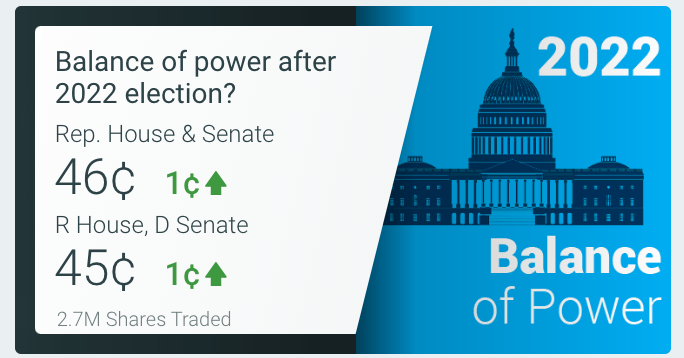Trading the Trade War: The High-Risk, High-Reward Landscape for Matson and Zim
Tariffs are steering container giants off course, but these two shipping names may be undervalued.

- Tariffs have triggered startling declines in shipping volume and port activity, and container companies are canceling sailings to align with reduced demand.
- Matson, which operates container ships, posted strong Q1 earnings grow but downgraded its outlook for the remainder of 2025.
- Both Matson and another container operator—Zim—seem attractive on a valuation basis, but uncertainty makes them high-risk, high-reward investment.
With the bulk of China’s exports to the United States arriving via container ships, President Trump’s tariffs have hit marine shipping especially hard. Think of the industry as teetering on the edge of a cliff.
Let’s examine the latest developments in the $10 billion container shipping market, with a particular focus on two of the largest players: Matson (MATX) and Zim Integrated Shipping Services (ZIM). We’ll analyze their valuations and examine their near-term outlook, while also highlighting the earnings report Matson released on Monday.

Headwinds mount in marine shipping
Enormous container ships, some stretching the length of multiple football fields, are the backbone of global trade, transporting everything from electronics to raw materials. The industry is navigating one of its most turbulent periods in decades, caught in the confusion of shifting tariffs and geopolitical tensions, especially the unease between the U.S. and China.
Tariffs on Chinese exports have dramatically reduced demand for container ships traveling from the Middle Kingdom, causing widespread disruptions, canceled sailings and extended delays. The Q2 contraction in container shipping volume is the sharpest since the COVID-19 pandemic, acccording to Drewry, a prominent maritime research firm, With these massive ships idling or rerouting, marine shipping companies are struggling mightily to balance capacity with shrinking demand.
American ports hit hard by declining traffic
The ripple effect of these disruptions has been felt deeply at major U.S. ports, with traffic at critical entry points like the Port of Los Angeles dropping sharply. As Gene Seroka, executive director of the L.A. port, recently noted, “It’s a precipitous drop in volume with a number of major American retailers stopping all shipments from China based on the tariffs.” Shipments from China account for nearly 45% of the L.A. port’s business, making the scale of the downturn massive. In response, transport companies are shifting their focus, turning elsewhere in Southeast Asia to fill the gap. Countries like Vietnam, Malaysia and India are poised for a rise in container activity, as American companies seek alternative sourcing to mitigate the effects of the trade war.
Data from the L.A. port sheds light on the challenges. For the week of April 27 to May 3, container volume dropped by 30%, compared to the previous week and 13% year-over-year. The port is bracing for a further 35% decline in traffic this week (May 4 to May 10), compared to the same period last year. And this worrisome trend in container activity isn’t expected to abate anytime soon. The world’s five largest containership operators have already seen a 30% drop in forward bookings for eastbound shipments, according to The Wall Street Journal. That may mean the negative effects of the trade war are in the early innings.

Marine shipping companies scramble to reduce overhead
In response to shrinking demand, ocean carriers are taking drastic measures to align capacity with reduced volume. One of the primary strategies is “blank sailings,” where scheduled voyages are canceled. By removing a specific sailing from the itinerary, carriers avoid operating with underutilized ships, thus minimizing inefficiency. In mid-April, one large carrier had already canceled 80 sailings as part of this strategy, CNBC reported. Another tactic is to idle or “lay up” ships, temporarily taking them out of service to reduce overall capacity.
While some analysts remain hopeful for a resolution in the near future, others warn the effects of an intensified trade conflict could persist for months, leaving the industry in a prolonged state of flux. In this volatile environment, companies heavily exposed to the container shipping segment face considerable uncertainty. So, let’s assess the near-term prospects and valuation of two marine shipping companies—Matson and Zim.
Matson’s outlook dims after earnings report
Matson, a standout in shipping and logistics, is executing a successful business model that leverages the Jones Act—a U.S. maritime law that provides the company with a critical advantage on certain trade routes. By mandating ships operating between U.S. ports must be U.S.-built and crewed, this legislation effectively shields Matson from heavy competition on crucial shipping lanes. With strategic operations connecting isolated markets such as Hawaii, Alaska and Guam, Matson’s fleet has become a dominant force, tightening its grip on these vital trade arteries.
Despite recent tension, Matson has managed to sustain growth. However, its Q1 2025 earnings report presents a more nuanced story. On the positive side, the company achieved a remarkable 100% increase in net income and a 110% jump in earnings per share (EPS), compared to the same period last year. Yet, the company fell short of revenue expectations, reporting $782 million against the analyst consensus of $818 million. Similarly, EPS came in at $2.18, missing the $2.27 expected by analysts. While the year-over-year growth is strong, the company’s failure to meet expectations, coupled with a less-than-optimistic forward outlook, has raised concern about its near-term trajectory.
“While we experienced strong growth in Q1, the uncertainty surrounding tariffs and trade volumes has led us to adjust our outlook for 2025,” said Matson chair and CEO Matthew Cox. While 2024 saw strong performance, the start of 2025 has brought new hurdles, driven by geopolitical instability and weakening demand in critical markets.

The risk has weighed heavily on Matson’s stock, which has fallen more than 30% over the past six months. Despite strong Q1 results, the uncertainty surrounding the company’s near-term outlook caused an additional 13% drop in its share price following the earnings release. Investors are adopting a cautious stance, awaiting more clarity on how global trade dynamics and geopolitical factors will unfold in the coming months.
Matson’s valuation metrics, while seemingly attractive, reflect the market’s cautious stance. The company’s P/E ratio of 7.9 is notably below the sector median of 22.6, and its P/S ratio of 1.1 is lower than the industry average of 1.5. With a P/B ratio of 1.4, compared to the sector’s 2.7, it appears undervalued relative to its intrinsic value. However, despite the seemingly favorable metrics, analysts remain hesitant, with all three rating the stock as a “hold.”
An analyst at Stifel Financial maintained its “hold” rating for Matson following the recent earnings release, but slashed its price target from $160 to $130 per share. Before the release, the consensus price target hovered around $150 per share, but the Stifel revision indicates it will be moving lower. This downgrade reflects growing concern in the investment community about the ability of container shipping companies to navigate the current geopolitical uncertainty and tariff disruptions. Shares dipped below the $100 mark on Tuesday.

Zim’s near-term prospects are deteriorating
Zim Integrated Shipping Services, another important player in container shipping, is renowned for its nimble management and focus on shareholders. Over the past decade, the company has successfully used its modern, efficient fleet and strategic global presence to carve out a competitive edge in a volatile and ever-changing market. As one of the leading forces in container shipping, it has effectively navigated the industry’s inherent volatility, constantly adapting to the shifting global trade dynamics.
However, the escalation of American tariffs has added a fresh layer of uncertainty. The protectionist policies threaten to destabilize the shipping sector, and Zim, with its heavy reliance on Pacific trade routes, is exposed. These growing trade tensions are expected to disrupt the company’s operations, challenging its ability to sustain profitability and growth in an already volatile market. This likely explains why shares have dropped over 35% year-to-date.
In its most recent earnings report, Zim posted impressive financials after a remarkable recovery from previous years. During fiscal 2024, the company generated $8.4 billion in revenue, with net income of $2.1 billion, marking a notable turnaround from the previous year’s loss. It also reported record carried volume, with Q4 2024 seeing a 25% year-over-year growth in TEUs, or 20-foot equivalent units—a measurement used in shipping.
The impressive surge in freight rates, a 71% year-over-year increase in Q4, bolstered Zim’s margins, with an adjusted EBITDA margin of 45%. However, the forward outlook is far less optimistic. The company is undoubtedly facing the threat of reduced freight rates in 2025, especially if the elevated trade tensions aren’t resolved soon. The company has already forecasted that adjusted EBITDA will range between $1.6 billion and $2.2 billion this year—a sharp decline compared to 2024’s strong performance.
The valuation metrics make Zim a tempting proposition for value-focused investors. With a P/E ratio of 0.8, well below the sector median of 22.6, and a P/S ratio of just 0.2, the company appears significantly undervalued. The stock’s P/B ratio of 0.5 also suggests it’s trading below its intrinsic value. However, while these metrics indicate a steep discount, an investor’s ability to capitalize on this undervaluation is clouded by external factors.
Along those same lines, analysts are largely wary of Zim’s prospects, with just one “buy” rating and another “hold,” while five analysts have taken a more bearish stance with “sell” or “underweight” ratings. This caution stems from growing concern over geopolitical headwinds. With an average price target of $15 per share—within close range of where the stock is trading—there appears to be little room for immediate upside, unless external factors shift. Shares in Zim traded 10% lower Monday after Matson’s earnings were released.

Takeaways
Container shipping is caught in a perfect storm of shifting trade policies, escalating tariffs and unpredictable global supply chains. Stocks like Matson and Zim have been hammered, falling more than 40% in six months, and these steep declines have made their valuations increasingly attractive. With Matson’s P/E ratio at just 8.1 and Zim’s an eye-popping 0.8, these companies may be undervalued—potentially offering opportunities for those willing to ride out the volatility. However, the industry’s trajectory will depend on unpredictable decisions—with ever-changing trade policies effectively holding the sector hostage.
While both Zim and Matson are inching closer to “buy” territory—especially for investors with a high tolerance for risk—their future performance remains at the mercy of unpredictable global forces. Trade tensions, shifting tariffs and supply chain disruptions continue to hang over the market like a storm cloud, making these stocks high-risk, high-reward propositions. For those who see a light at the end of the tunnel, this may be the time to act—but the path forward could be turbulent. Looking ahead, Zim’s upcoming earnings report, scheduled for May 19, will provide insight into the state of the industry.
Andrew Prochnow, Luckbox analyst-at-large, has traded the global financial markets for more than 15 years, including 10 years as a professional options trader.
For live daily programming, market news and commentary, visit tastylive or the YouTube channels tastylive (for options traders), and #tastyliveTrending for stocks, futures, forex & macro.
Trade with a better broker, open a tastytrade account today. tastylive Inc. and tastytrade Inc. are separate but affiliated companies.



















